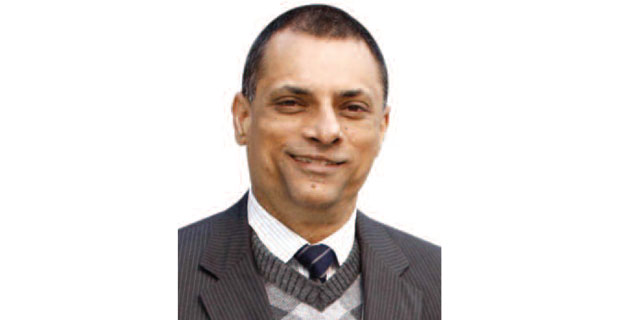Editor’s Desk
Every new beginning comes from some other beginning’s end.
—Seneca
Fourteen years ago the Conservative Party in the U.K. had stormed to power on the back of an effective “vote for change” slogan. That was the year 2010, and the British people were indeed looking for change. They voted in the country’s main right wing party, hoping that change was not too distant a dream. Five years rolled by quickly for the Tories. During the general elections of 2015 the slogan once more shifted. This time it was about a “strong leadership, a clear economic plan and a brighter, more secure future.” In the general elections of 2017, it was about “moving forward, together.” In 2019, the Tories wanted “Brexit done and unleash Britain’s potential.” It all worked, even as the party put up five Prime Ministers over the last 14 years.
In the 2024 general elections, the slogan changed once more. This time it was about a “clear plan, bold action, secure future.” Quite clearly, it did not work. The Conservative Party tumbled to an overwhelming defeat, losing 244 Parliamentary constituencies and ending up with 121 MPs (from the high of 365 in 2019). It was the end of a promising beginning in 2010.
The Labour Party—the other large party in the U.K.—is now back in the political saddle, rather decisively, after sweeping 419 seats, up majorly from the 202 they had secured in 2019. The party, best described as an alliance of social democrats and trade unionists, has chosen Keir Starmer as the Prime Minister. As Seneca, the Roman philosopher would say, it’s a new beginning for the party, and the end of the beginning of another.
Through all this, though, the Indian presence in the British Parliament has only gone up a notch or two. There are now 26 British MPs of Indian origin, up from 15 in 2019. This number includes Rishi Sunak of the Conservative Party who from Prime Minister has now become Leader of the Opposition. Forty-four-year-old Sunak held his own and won from the Richmond and Northallerton constituency in Yorkshire. Suella Braverman, the same age as Sunak, won a record fourth consecutive time from Fareham and Waterlooville. When we had put Braverman on our magazine cover in December 2023, she’d just been sacked a second time as Home Secretary in less than a year’s time.
Also from the Conservative Party, Priti Patel, a former Secretary of State for International Development, won from Witham, Essex, a constituency she’s represented since 2010. Gagan Mohindra was reelected from South West Hertfordshire and Shivani Raja won the Leicester East constituency.
For the Labour Party, Seema Malhotra retained her Feltham and Heston constituency for a fourth term since 2011. Malhotra has been Shadow Minister for Skills and Further Education. Valerie Vaz, Labour leader of Goan origin, won the Walsall and Bloxwich constituency for the fifth time. Vaz, who has been an MP since 2010, has served as the Shadow Leader of the House of Commons. Lisa Nandy retained her seat in Wigan, making her the constituency’s first female MP and one of the first Asian female MPs since 2010. She has served as the Shadow Cabinet Minister for International Development.
Nadia Whittome, who made history in 2019 as the UK’s youngest MP at the age of 23, was re-elected from Nottingham East. Preet Kaur Gill, the UK’s first female Sikh MP, defeated Conservative Ashvir Sangha in Birmingham, a seat she has held since 2017. Gill has served as the Shadow Minister for Primary Care and Public Health.
Labour Party’s Tanmanjeet Singh Dhesi retained his Slough constituency, although with a reduced victory margin. Additionally, other Indian-origin Labour MPs to be elected to the UK’s House of Parliament include Navendu Mishra, Jas Athwal, Baggy Shanker, Satvir Kaur, Harpreet Uppal, Warinder Juss, Gurinder Josan, Kanishka Narayan, Sonia Kumar, Sureena Brackenbridge, Kirith Entwistle, Jeevun Sandher, Sojan Joseph and Murina Wilson.
Away from British politics and Indian-origin MPs we’ve focused on the G7 Summit held in Italy in June. There’s a special report on what it means for India to have participated for the 11th time as a special invitee. For Prime Minister Narendra Modi, personally, it was a sixth invitation to the Summit.
Elsewhere, an Indian delegation led by Chief Election Commissioner Rajiv Kumar concluded its five-day visit to Mongolia on June 29, 2024, after observing the process of elections in the strategically-located country. Representatives from 40 countries were invited by the General Election Committee of Mongolia as international observers. Canada’s High Commissioner to India Cameron Mackay has reiterated that the violence and anti-India hatred spread by pro-Khalistan elements in his country is “never acceptable in Canada.” Australia’s High Commissioner to India Philip Green talks about how India offers investment opportunities to green companies, some of them are deeply engaged in the hydrogen and solar panel sectors. And even as there are sharp global views on Qatar’s questionable role in the Israeli-Palestine conflict, Indian Foreign Minister S. Jaishankar visited Doha and met with the nation’s PM and his own counterpart to discuss a range of subjects.
There are many other stories of interest that you’ll find worth navigating this issue.
Happy reading.
Sayantan Chakravarty
sayantanc@gmail.com











Comments.